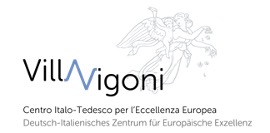
28
Sep 2020
Digital Ethics – The Issue of Images
Villa Vigoni, Como
September 28, 2020
October 1, 2020
Deutsch-Italienische Zusammenarbeit in den Geistes- und Sozialwissenschaften 2020
Scientific Committee:
Prof. Dr. Thomas DREIER, M.C.J. (Karlsruher Institut für Technologie – KIT)
Prof. Tiziana Andina (Università degli Studi di Torino)
INTRODUCTION
Digital technology is about to fundamentally change our societies. This raises a broad range of ethical issues, the discussion of which might ultimately lead to a digital ethics. Since addressing all issues and questions of a digital ethics would by far be too broad in scope, it is suggested to focus the discussions of the conference at the Villa Vigoni on core ethical, legal and social issues concerning the production, dissemination and, ultimately, consumption of digital images.
The proposed conference takes as a starting point that with the advent of television and the Internet, and especially following the spread of networked mobile devices and social media platforms, images are of an ever increasing importance in everyday communication. At the same time, from Plato’s critique of pictures to recent approaches which assume that images are not just inanimate objects, but that they act as independent subjects, viewers have been suspicious of images. The reason is that although in the form of physical pictures, images can be real objects. Yet, at the same time they present something that is not present at the place and at the time when they are looked at. Images are powerful, but also not very precise as to their meaning. According to a proverb which is often quoted, “a picture says more than a thousand words.” But what exactly does it say? This gives rise to the question how law reacts and should react to the proliferation of the use of digital images in social communication in the light of their semantic blurriness and their normative effect. In short: if pictures play an important role in contemporary social communication, then the legal regulation of their production, distribution and sale is well worth being studied.
The conference program is based on the conviction that meaningful regulation cannot be designed by merely taking an intra-legal point of view. Rather, sound and acceptable legal rules have to take into account an ethical framework as well as the technological possibilities and constraints, in order to adequately reflect how images “work” and which consequences their regulation has on society.
PROGRAMME
29.09.2020
Morning Session
09:00 Welcome address and opening
(Prof. Dr. Thomas DREIER; Prof. Dr. Tiziana ANDINA)
09:15 Setting the scene
(Chair: Prof. Dr. Maurizio FERRARIS)
From Goethes’ Italian journey to transalpine online navigation – Narrative changes and transnational stereotypes
(Prof. Dr. Dr. h.c. Werner GEPHART, University of Bonn and Käte-Hamburger Kolleg, Bonn) [Zoom]
Digital Ethics – An Overview
(Prof. Dr. Reinold SCHMÜCKER, University of Münster)
10:15 Discussion
11:00 Coffee Break
11:30 Binary encoding: The dissolution of visual objects? (Chair: Prof. Dr. Thomas DREIER)
From Cut&Paste to Deep-Fakes –Digital collaging and image manipulation (Olivia HÄGLE, Karlsruhe Institute of Technology)
The onion principle – the different layer of IP and data rights in an image (Prof. Dr. Benjamin RAUE, University of Trier)
From image to images in the plural – An art historian’s perspective (Prof. Dr. Peter GEIMER, Free University of Berlin) [Zoom]
12:30 Discussion
13:00 Lunch Break
Afternoon Session
14:30 Discussion (cont’d)
15:00 Ethical questions (1) (Chair: Prof. Dr. Alessandra DONATI)
The normativity of images
(Assoc. Prof. Dr. Enrico TERRONE, University of Torino) [Zoom]
The Documedia Revolution
(Prof. Dr. Maurizio FERRARIS, University of Torino)
15:30 Discussion
16:00 Coffee Break
16:30 Concealment: Withdrawing images from the gaze (Chair: Prof. Dr. Benjamin RAUE)
Digital Images – Building the identity of a society over time (Prof. Dr. Tiziana ANDINA, University of Torino)
Cultural memory between law and market
(Prof. Alessandra DONATI, University Milano-Bicocca) [Zoom]
Icons, Indexes, and Symbols of the Face in Digital Forensics: A Semiotic Contribution
(Prof. Massimo LEONE, University of Torino)
Deletion and blocking – Who decides according to what criteria
(Dr. Georg NOLTE, Google Germany)
17:15 Discussion
18:00 Closing session
30.09.2020
Morning Session
09:00 Ethical questions (1) (cont’d) (Chair: Prof. Reinold SCHMÜCKER)
Fairness aspects of techniques of referencing cultures (Eva-Maria BAUER, Karlsruhe Institute of Technology) [Zoom]
Virtual Art and the Ways of Participation
(Dr. Davide DAL SASSO, University of Torino)
Regulating Images – Some transcultural remarks
(Prof. Dr. Gianmaria AJANI, University of Torino)
10:00 Discussion
11:00 Coffee Break
11:30 Ethical questions (2) (Chair: Prof. Dr. Tiziana ANDINA)
Regulating algorithms
(Lisa KÄDE, BSc., Karlsruhe Institute of Technology)
The deontic power of the Internet – Access controls and the obsolescence of legal norms
(Prof. Dr. Thomas DREIER, M.C.J., Karlsruhe Institute of Technology)
Uploadfilter – Ethical or unethical?
(Dr. Eberhard ORTLAND, University of Münster)
12:15 Discussion
13:00 Lunch Break
Afternoon Session
14:30 Discussion (cont’d)
16:00 Coffee Break
16:30 Parallel Workshops – Towards a Digital Ethics for Images
18:00 Closing session
01.10.2020
Final Session
09:00 Ethics and fundamental rights (Chair: Prof. Dr. Gianmaria AJANI)
Fundamental rights and the regulation of the use of images by copyright of law
(Prof. Dr. Christophe GEIGER, CEIPI, Strasbourg) [Zoom]
Constitutional protection of images
(PD Dr. Johannes EICHENHOFER, Karlsruhe Institute of Technology)
Law, Ethics, Politics – Matching, overshooting tendency or unregulated remainder? (Prof. Dr. Ralf POSCHER, Max Planck Institute for the Study of Crime, Security and Law, Freiburg)
09:45 Final Discussion
12:00 Lunch Break
Departure

